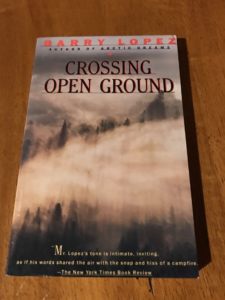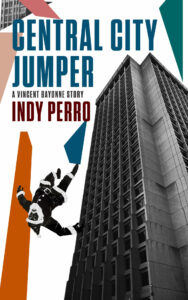Summary:
Sheriff Walt Longmire is asked to transport Raynaud Shade, an adopted Crow Indian and convicted killer, to find the remains of one of Shade’s victims, a child buried ten years ago deep within the Bighorn Mountains. Longmire learns that he knows the dead boy’s family, and when Shade escapes in the midst of a blizzard, Longmire, alone, must hunt the murderer. Guided by Indian mysticism and Dante’s Inferno, Longmire braves icy hell in order to deliver criminal and spiritual justice.
Analysis:
I’ve given The Cold Dish, the first in the Longmire series, to at least three friends, and I highly recommend the Longmire series to anyone who enjoys fiction, especially lovers of mysteries or westerns. In Hell Is Empty, Johnson exceeded his usual high standard. He created something truly special, a pastiche of a contemporary western, classical literature, and a new American myth.
In all of his novels, Johnson entertains, and he provides his audience with enough substance to delve more deeply into the ideas his stories present, ideas inherent in America’s relationship to its landscape. A reader can enjoy the story, the fictional county of Absaroka, and the development of the well-drawn characters, and Johnson doesn’t force anything more onto his audience. If you choose, however, the option remains. The west contains meaning, and Johnson’s characters exist and struggle in a west that gives their lives meaning.
The west exists for America as a personal landscape, a physical, spiritual, and symbolic space that couldn’t be compared to Europe and has never been truly “settled.” The indigenous population never released the land, and their claim remains part of the American psyche. The landscape of the west, as Johnson shows, extends beyond civilization. Johnson’s Wyoming retains a wildness that cannot always be explained and which escapes rationalization. Longmire may have a satellite phone, but he loses himself in the wilderness only to discover something more important, perhaps a sense of justice, or vengeance, or identity. In the west, you need to make decisions for yourself, and the meaning the novel contains, like a landscape unto itself, can only be discovered by a discerning, contemplative, adventurous reader.
In Hell Is Empty, Johnson embeds a fast-paced mystery within Virgil and Dante’s descent into Hell, and in so doing, he blends Native American mysticism with Catholic symbolism. That blend of Native American and European meaning exemplifies the west as a cultural landscape. Who would we be if we weren’t a mixture of those who came before? As a society, we often struggle with difference. We see the boundaries between beliefs and values as harsh, disparate, and unyielding. As he weathers the storm and seeks a man who in violating the laws of society placed himself outside of culture, outside the law, Longmire journeys beyond culture and uses his reference points of indigenous belief and Catholic symbolism to blaze a trail into the unknown.
Biography:
Craig Johnson is the author of the Longmire mysteries, the basis for the television show Longmire. His novels are set in northern Wyoming, where Walt Longmire is sheriff of the fictional Absaroka County. Johnson has won numerous awards for his fiction.





